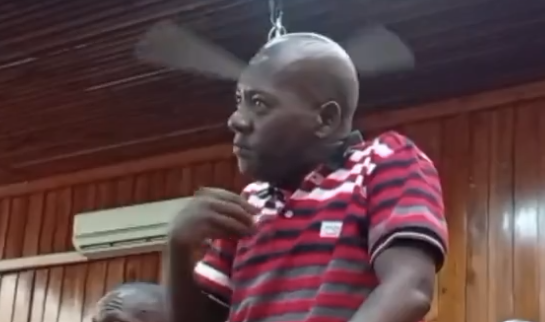

The prime suspect in the Shakahola massacre Paul Mackenzie has asked the court to stop prison authorities from giving him what he terms as ‘special treatment’, claiming it endangers his life.
Mackenzie told the court that he has been forced to receive special meals and medical attention without his consent, alleging that such treatment poses a threat to his safety.
“I want to seek some orders from the court because they have been forcing special treatment on me. I have been surviving dangerously because they want to give me special treatment on food. I have seen they have found a leeway through that,” Mackenzie claimed.
The self-proclaimed preacher, accused of leading a deadly starvation cult in Shakahola, Kilifi County, said he fears that the alleged special attention could be used as a means to harm him.
“I’m seeking an order that I should be allowed to queue with others in the block and eat where everyone is eating. I don’t want special treatment anymore. I want the court to give an order that I should not be taken to the hospital within or outside the prison without my authorisation. They might finish me on the way or give me a treatment that I don’t need,” he said.
Mackenzie, alongside several co-accused persons, faces charges related to the deaths of more than 400 followers believed to have starved to death under his instructions in what has been described as one of Kenya’s worst cult tragedies.
The accused face multiple charges, including child cruelty, torture, and denial of education, in connection with the Shakahola massacre.
On September 18, emotional testimonies were presented at the Tononoka Children’s Court before Principal Magistrate Nelly Chepchirchir.
One of the witnesses, Charles Adundo, an elderly grandfather, recounted how he last saw two of his grandchildren after their father took them to school.
“That was the last time I saw them,” Adundo told the court.
Another testimony came from 70-year-old Felida Vugusa of Kapkerer, who said her daughter, Sarah Khahisha, her son-in-law, Mulama, and their five children disappeared one Sunday while she was at church.
She added that Mulama had opposed formal education for the children and was attending a church she did not know much about.
The court also heard from government analyst Henry Kiptoo, who said DNA profiling of 333 family samples had identified 69 bodies from the Shakahola exhumations, some of which were confirmed to be children and relatives of the accused persons.
Further evidence was presented by Liwa Filbert, Director of the National Registration Bureau, who explained how fingerprint analysis helped identify more than 35 suspects who had allegedly given police false names.
In another testimony, 26-year-old Khadija Wilson described how she rescued a malnourished boy who had fled from Mackenzie’s area.
She said the boy was too weak to attend school and was sheltered for four months before being placed under state care.

















